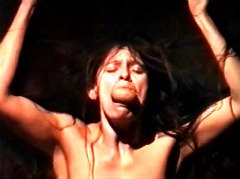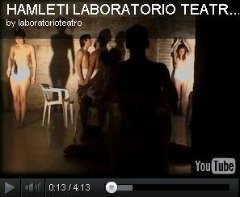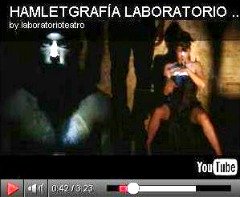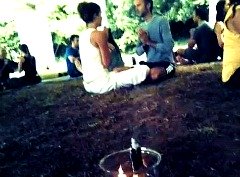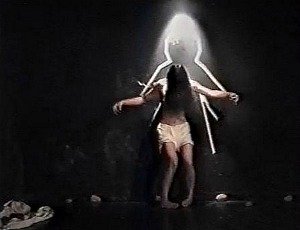| Back to Back Issues Page | |||
 |
|||
|
DANCING FROM THE HEART BY JESSICA WALKER, The Dance Thinker, Issue #14 December 23, 2011 |
|||
The Dance Thinker Issue # 14, December 23, 2011
1. New page at the website: Mary Wigman. German Expressionist Dancer and Choreographer 2. I wish you all great holidays and a very happy new year full of dance! (The article included in this issue is an ‘end-of-the-year’ gift. You will see how fitting it is for the current spiritual weeks... don't miss it!)
1. DANCING FROM THE HEART, BY JESSICA WALKER
https://www.contemporary-dance.org/The_Dance_Thinker-jessica-walker.html
We have: - A page for contemporary dance announcements in which you can post your news about workshops, auditions, performances, meetings or any current, related items. - A contemporary dance blog where you can find current information and that will automatically distribute what you post in the announcements page to facebook, twitter and all subscribers to the site’s RSS feed. - A worldwide, contemporary dance directory of schools, companies and websites to which you can also submit your contact information. - A special page for asking dance questions. - Several pages in which you can participate with contributions like articles, reviews, questions, comments or even ratings. - An archive for THE DANCE THINKER back issues, where you can always revisit precedent issues from our e-zine. - A contact page through which you can address to me directly if you have questions, ideas, wishes, suggestions or comments.
News
Mary Wigman. German Expressionist Dancer and Choreographer
Jessica Walker (founder of the “Laboratorio de expresión dramática” in Barcelona) visited Colombia recently and offered a three-days experience of sharing, training and creativity. As with other artists, I profited to ask her about her insight, through an interview that she accepted generously. Other than the interesting character of her speech and method, I was stirred by her strong conviction of a spiritual positioning towards art. She really moved me with some of her statements and left me thinking about my own way of dancing and creating. Just the conversation itself was enough as a healthy experience for me. It made me remember things I had left behind and pushed me to question my self, once again, about the relationship I’ve established with dance during my life. Below you will find the transcription of our conversation, in which she explains the purpose of her teachings to dancers, in order to reach another level of expressivity. I hope it touches you in one way or another, as it did with me.
Jessica Walker: Well, truly, I never know until I see the group. I’ve got a huge fan of options and I know exactly what the purpose is and what we came to share together, but it depends on the group and the energy we have there. I can start with A as much as with Z. CDO:Would there be a way to define that purpose you are talking about? JW: Yes. The purpose is to remember that in any art or any way of expression, if you don’t go through the heart, nothing happens. The purpose has to have heart. CDO: How could we describe the way in which you help the group remember that purpose? JW: It is through experiences and it is difficult to put it into words because it happens within the frame of an experimental work. I like to give this the name ‘Laboratory’ because I generate a space in which we make experiments and have a living experience. I would say that there are several things that I work over like: - I want to remember love - I want to remember trust - I want to remember that the creative person is free - I want to remember that you don’t have to do it right, but living (alive) - I want to remember that by attacking we don’t get anywhere -I want to remember that Theater is intrinsically a product of ego, and through that path we don’t get to the medulla of the essence neither It is over those textures, as options of a fan, that I organize the workshop. For example if I have a group of dancers, I would off course work over the body, if it’s a group of therapists it would be very different; I might have a group that doesn’t know well what to expect, so I would work to find out what their needs are. Every group has its own needs. CDO: So, if you had a group of contemporary dancers, how would start a class? JW: With no doubt, it would be asking them: What is your fear related to your body? CDO: Would it be in the form of a dialogue? JW: My courses have all kind of forms but with no doubt, the dialogue is one of the basics. I always do sittings in circles where we can meet each other, like the ancient shamans. I like to provoke people (in the good sense) and basically try to find which their fears are. There’s something that I like to work with dancers particularly and it concerns the ‘form’, because the ‘form’ is a limit, a deep limit. You can work relating to a ‘form’ or you can work relating to something deep down that touches the ‘form’; not the ‘form’ touching deep down. CDO: Do you improvise the activities you propose to the group or do you have a series of established things to do? JW: Both. I have a very established part which is where I’m going, and there’s another part that is improvised. So again, it depends on the group. In some courses we might hang about three hours talking, not because I decide it but because it happens. For example last year, in a contact festival in Ibiza, I improvised a class. I sat with around 100 people, all contact dancers, and I asked a question that gave us work for three hours. We couldn’t get to the dancing! The question was so irreverent and so provocative that it was very juicy. CDO: And could we know what the question was? JW: Well, you know that when you do these group activities, the typical question is something like ‘present your self to the group’ or ‘tell us something about your self’ or ‘why are you in this group’… so, I start exactly with the opposite. I think that in that occasion the question was something like… “Tell us something that you wouldn’t want us to know”... CDO: Is that also in relationship with the subject of fear that you were mentioning before?
JW: Yes, off course, because that’s the foundation of all the bodily work I propose. CDO: So, if I understand well, you mean that searching inside a hidden territory of the dancer we would find something that could connect us in a different way to our dance? JW: Yes, with no doubt, all our hidden truths. CDO: And do those ‘hidden truths’ work as strategies to awaken things in the dancer or are they material and/or content of what is produced artistically? JW: Both. You can not separate them. If the creator remembers it, lives it and experiences it, it will be closely attached to her/his dance. There are many different ways of working, but I name three layers. The most superficial layer, a layer in the middle that happens when we’re going inside but do not reach the medulla yet and the essence, which is what I call the ‘medulla’. At that point, you don’t work to please the audience or thinking of a result anymore, like in Stanislavsky’s method. I do not work in that dimension; I search to really touch a personal medulla, a need of dance or a need of telling something and that, we share it with the audience. We don’t show. We share. CDO: And this thing you call the ‘medulla’, is it the hidden truths or is it something different? JW: What I call the ‘medulla’, from the creative work’s perspective, is something that touches you deeply. If you are not touched your self, it is difficult that you will reach to touch the audience. When you dance something or choose to create a piece, why do you choose it? Do you choose it because the audience will like it or do you choose it because it touches you? So, if you choose something to please the audience, I feel that the work will reach no further than a superficial level, at what I call the first or second layer. It will not reach the ‘medulla’, because you are working outwards and not working for something to change within you. For me, the creative person is free and s/he shares the ‘medulla’. However, I keep in mind that the fact of being touched by a dance piece is a subjective matter. For example, once I had the fortune of seeing Paxton (the creator of the contact technique) when he was sixty years old. He was doing the most impressive work I’ve ever seen, which is not a danced piece. It was an autobiographic work and I saw it in Paris at a very small theater. Paxton appeared on stage and said “there are very few things in my life that have impressed me, but one of them was my father’s death”; everything would go black, his voice in off started telling how he was in the bathroom, the ambulance arrived, his mother was in the kitchen…; and he just crossed the stage over a diagonal, walking. All the audience behind me was sleeping… and I was completely amazed, feeling and thinking: “This is what I want to do”. After that occasion I saw Paxton dancing and nothing happened to me. But the other work made everything happen inside me. I can perfectly see the difference of a fantastic technical work and off course, I totally respect it, but that’s not my thing; that’s not what touches me or what I retain from dance or theater. I can appreciate technical virtuosity. I find it fantastic but technical dances have to touch my heart to reach me. CDO: Now that you talk about the heart again, I’d like to profit to ask you about something I found in the description of your work at your school’s website. You talk about god and the divine there. Could you explain us the meaning of what you call ‘the divine’ and ‘god’, both words that lie beneath your speech?
JW: My approach to art with this method is through God and I have no problem at all to say that. My spiritual approach to art, what I call ‘from the heart’, is due to the fact that my path is completely tied to god. For example, one of the basics of my work and of the laboratory is to meditate. For me, without meditation it is unlikely you’ll reach something deep artistically. And I truly mean that. For me, meditating is not just about sitting and singing ‘AUM’ endlessly. It is really a time for complete observation and breathing through which we can find the spirit that lies between you and me: that spirit that despite the fact that we know we’re different, lets us know that there’s something between us. So, how to create a training for this? In my case, one of the ways has been creating the school. I love the concept of ‘school’, because a school is a place you visit daily. You go in the morning, in the afternoon you start to forget, at night you forgot completely, but the next day you go back again, and we read the same tale below the tree. And we do so for three years. So, it is like a training. I believe that the spirit can be trained. Everything can be trained, actually. CDO: And how would you describe meditation? What do you do when you meditate? JW: I feel that the most difficult part of meditation or the reason why people might not like to meditate is because when you sit and give your self some time, just for your self, all your ghosts and fears become visible; and obviously we don’t want to see neither the ghosts nor the fears, so people don’t like meditating. (loud laughings) CDO: So you just sit and observe your self? JW: Yes. That’s the starting point. For meditating, we have to be totally honest. CDO: So, would this be a way to prepare your self for the search of those fears or that ‘essence’ that you mentioned before, when we talked about the actor-dancer’s training? JW: Exactly. And after that, when you understand the core of this, you will not want to miss the training. And again, I could make emerge some technical result from you as a dancer, which I believe is important, but that’s not enough for me. CDO: Is that why you name the work “Laboratory of dramatic expression”? I’m not sure if this is my personal interpretation, but I believe you mean that reaching that level in which you find that ‘essence’ would allow you to have a different expressivity? JW: Totally. And there’s no need to be afraid of laughing or crying, because they’re the same. I’ve known many dancers that have lots of trouble to work over emotions or that don’t allow them selves to do it because they believe that dance is a technical thing and that dancing is moving and that movement is the path. That’s also true, but once you go beyond the form and dance repeatedly, you enter trance or meditative states. You can call it differently; I don’t care about the word itself. The important thing is that you are somewhere else. CDO: And is this word ‘God’ that you use, related to any doctrine or tradition that exists already? JW: No. For me, ‘God’ is like the source; something from which everything emerges. It is not related to any religion or tradition, though I follow some masters. CDO: Is this notion of ‘God’ shared by the teachers that work with you at your school? JW: No, and I find that beautiful. We have a Jewish, an Atheist, a Yoga teacher, a Bach follower, a Kundalini Yoga practitioner and so forth. It is a place where we share different spiritual lineages. And I believe that enriches the school. There’s an article I would recommend to get closer to my understanding. You can find it at my school’s website. It is entitled “Todas las artes están dedicadas místicamente al perdón” (“All the arts are mystically devoted to the forgiveness”, in Spanish). CDO: From your own initiative, would you say something to the dancers that will read our interview? JW: Oh, yes, I would tell the dancers to please enjoy, to go out of the limit of the body and the form and please enjoy searching inside them selves what touches them. I have met so many suffering dancers, limited by the form or by the idea of being less than another dancer, with less technical skills. I would tell the dancers “Enjoy your dance, whatever your dance is, go crazy and learn to enjoy your self”. I think that among all arts, the most painful one is dance, with no doubt, because it has this limit of the body. And when you enter this fiction of the body, you can suffer deeply. And dance is not there…
Special thanks to Amor en Movimiento/Happy Yoga Medellin for their generosity and kind disposition.
If you can not view this message correctly, please copy and paste the following link fully in your browser's address bar:
Remember to feel free to answer this e-mail. Let me know what you think. I’m always opened to comments, suggestions, ideas, wishes...
Editor and Webmaster of contemporary-dance.org
|
|||
| Back to Back Issues Page |
